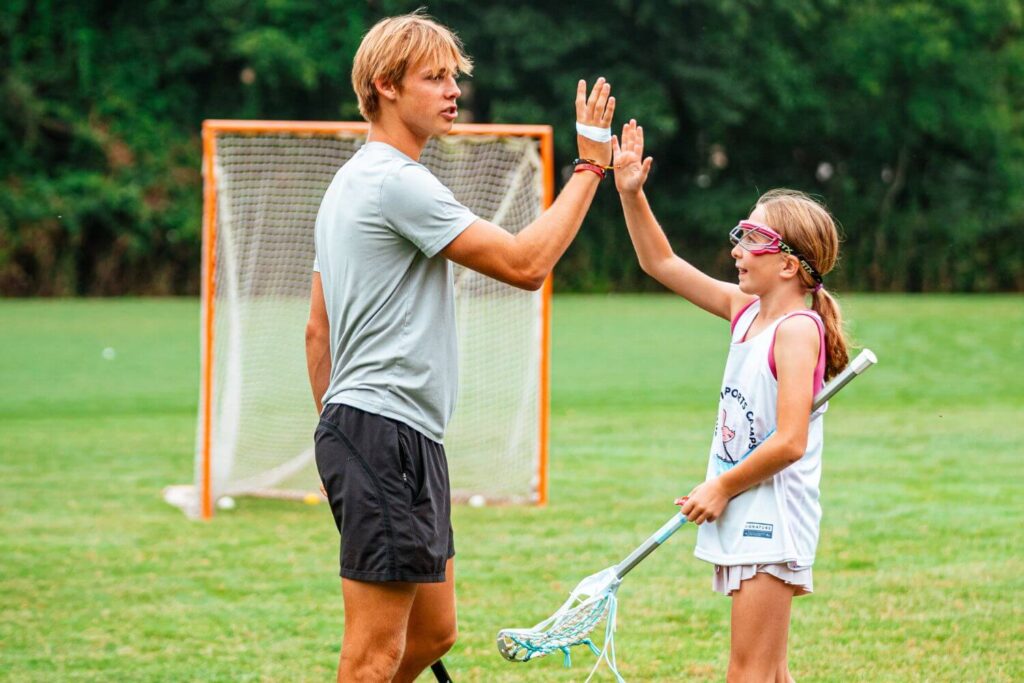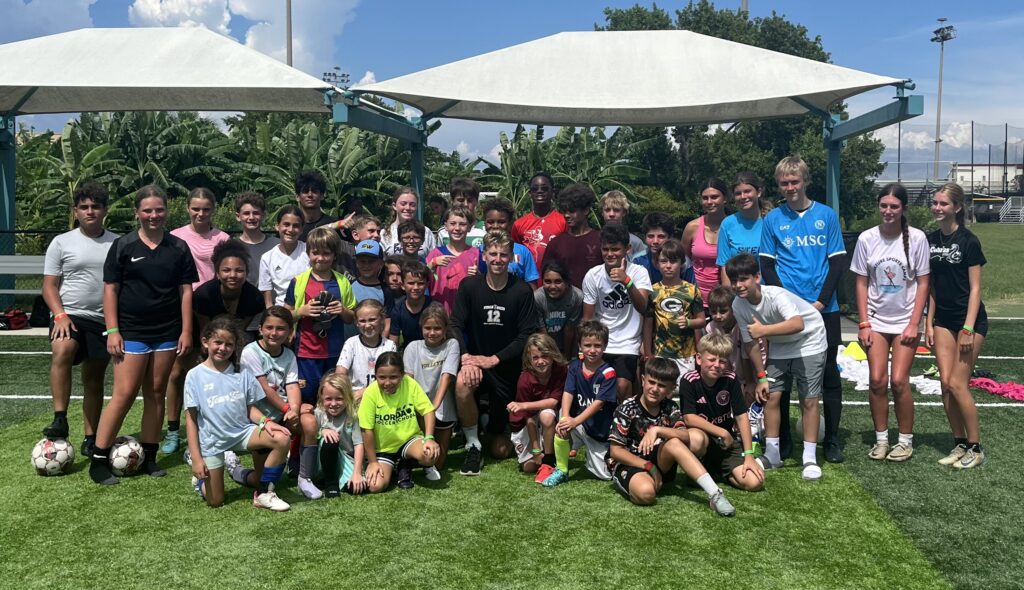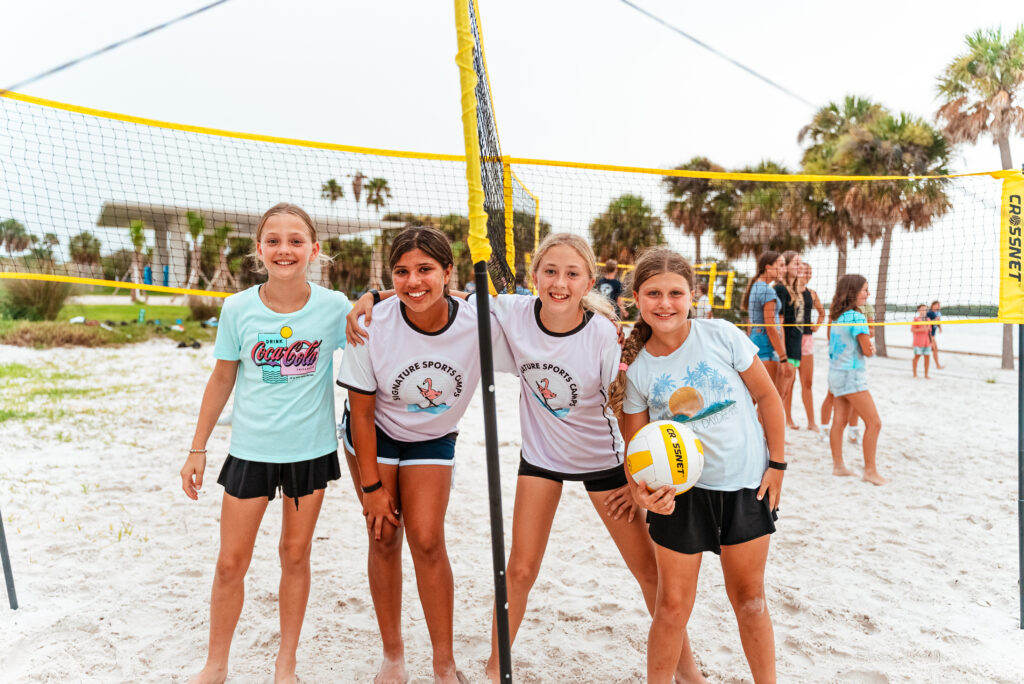Over the past few years, conversations around an athlete’s mental health and the subject of sports psychology have increased. This is attributed to a few factors, including notable athletes like Simone Biles and Michael Phelps speaking out about their own struggles with mental health and performance anxiety in sports. In the past, coaches, institutions, and even viewers saw athletes as their performance on the field. Think about it, when you’re watching NFL football, the last thing you’re thinking about is how Lamar Jackson is doing that day. But the tides have changed: sports psychologists, the media, and high-profile athletes are reminding the public that if we invest in an athlete’s mental game, then we will improve their physical game as well.
How Parents Can Help Youth Athletes Overcome Performance Anxiety
So as a parent of a youth athlete, what should you invest in? What are some tools that you can provide to your son or daughter that will make them more confident, unshakeable, and stronger on the field? We have some simple tips that each athlete should have in their toolbox when mistakes happen (which of course happens to everyone).
Practice Breathing Techniques
When sports performance anxiety (or any anxiety for that matter) hits, controlling your breathing is the number one way to bring down your heart rate and get back into a performance mindset. When you feel your heart rate pick up and your mind starts to race on the field, focus on deep (belly breaths) and slow breathing. If possible, switch to nasal breathing to help slow things down.
A great exercise to practice is box breathing with a longer exhale:
- 4-second inhale
- 4-second hold
- 6-second exhale
- 4-second hold
Do a few rounds of that on the sideline, and you will quickly get your head back in the game. If you can’t get to the sideline, try counting the seconds of your inhale: 5 seconds in, 6 seconds out. The key to these breathing exercises is slowing down your heart rate and getting your mind back to the game at hand.
Implement a Pre-Game Routine for Mental Preparation
Developing a pre-game routine is one of the most effective forms of mental training for young athletes. Many professional athletes have a routine that they follow before every game. Why? The simple acts of their routine primes their brains for the performance that is to come. So when it’s game time, you’re already in the performance mindset. A routine also creates familiarity and control, and when you feel in control, performance anxiety is less likely to take hold. Pre-game routines can include:
- Positive Visualization: How do you want your first play to look?
- Mental Rehearsal: When a mistake happens, what are you going to do?
- Music: Think of music that hypes you up and makes you happy
Focus on Positive Self-Talk to Reframe Mistakes

What do you say to yourself when things go wrong? Would you talk to your best friend the way you talk to yourself? For many athletes, the answer is no. If your child makes a mistake on the field, encourage them to use positive self-talk. This is a crucial aspect of mental training for young athletes and can help break the cycle of negative thinking that often accompanies performance anxiety in youth sports. Self-talk is so important because 9 times out of 10, what you say is going to happen will happen. If you focus on your mistake, you’re likely to make another because your mind is distracted and in a negative vortex: searching for more mistakes.
For example, instead of saying, “I can’t believe I missed that shot,” athletes can reframe their thoughts with statements like, “I’ll get the next one.” Positive affirmations increase confidence and help players bounce back faster.
Tip: Start with positive written affirmations so you start to see positive self-talk. Post a stickie note on your mirror that you look at every day speaking your goal into existence. For example, if you want to be the star midfielder on your team, your stickie note might say something like “I am proud to be the highest-scoring Middie on the team.”
Trust Your Training: Practice Leads to Confidence
At the end of the day: trust your training. “Confidence is competence”: if you spend 20 minutes a day (rain or shine) practicing one shot for 6 months, it will become automatic. When it’s game time and you go to shoot the ball, you won’t be nervous: you can do this in your sleep! Until you get to that level of confidence, add a few of these tips to your toolbox!
At Signature Sports Camps, we understand that success in sports is about more than physical ability. That’s why we incorporate mental training for young athletes into all our programs, helping participants develop the skills they need to overcome setbacks and perform with confidence. Whether your child struggles with performance anxiety in youth sports or just wants to sharpen their mental game, our camps provide a supportive environment where they can grow as athletes and individuals.
Explore our sports camps and give your athlete the tools they need to thrive on and off the field this season!














